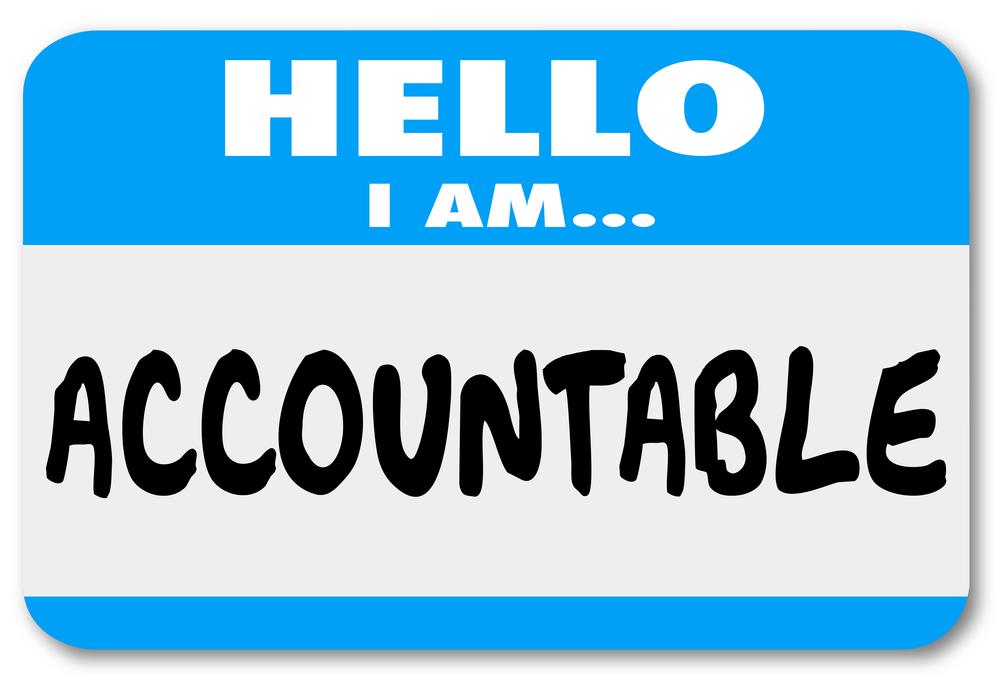One way to describe coaching is the practice of helping others do three things: Make decisions, commit to actions, and deliver results. To me, the whole purpose of coaching is to support people in being accountable to themselves by doing these three things.
Now more than ever, the workplace looks different for many of us, whether it’s hybrid, virtual, or in person. However, the fundamentals of coaching remain constant, and the delivery of it can be done in any setting because coaching is all about conversations.
Whether our conversations are formal or informal, virtual or face-to-face, we can coach for accountability in any workplace environment. Here are three ways to help managers do exactly that:
- Model SayDoCo:
Philosopher Moliere said, “It is not only what we do, but what we do not do, for which we are accountable.” The first priority for coaches looking to build accountability is to model it, which means owning what we do and can’t do.
At InsideOut, we describe accountability as saying what you’ll do, doing what you say, and communicating along the way—SayDoCo for short.
For managers who wish to increase accountability among their teams, the first step is to model it themselves as much as possible, if not all the time.
- Be caring, candid, and constructive in every conversation:
Coaching is all about conversations, and in a hybrid workplace, where conversations may be limited or sporadic, how we hold our conversations becomes even more important. Our research suggests that effective coaching conversations have three attributes: They are caring, candid, and constructive. Without these attributes, people tend to keep their defenses up and mistrust the intentions, which, in turn, reduces psychological safety and leads to avoiding engagement with the coach. All this makes coaching much more difficult.Caring about the individual means we are as interested in the person’s well-being as much as his or her deliverables.
Being candid with employees means respectfully telling our truth without sugar coating it or withholding information. It has nothing to do with being harsh or mean; it has everything to do with clarifying what is needed so they can figure out and commit to their best way forward.
And when our conversations are constructive—geared toward getting stuff done and supporting their well-being—we create the right conditions for accountability.
- Help them move from compliance to commitment: Compliance is what we might call the minimum standard, and commitment is what we’d call high performance. As managers become more coachlike in their conversations, they ask themselves, “How do we help people move from compliance (tell me what to do) to commitment (I’ve been doing …)?” This is one of the most useful outcomes of good coaching.
In the following graphic, you see how employees’ language can change as they move up the ladder from compliance toward commitment. The more committed your employees feel, the better their performance will be and the more accountable they will become.
Unwittingly, managers will get in the way of people being accountable by providing solutions for them to comply with—giving them a fish. Commitment requires teaching them how to fish—helping them find solutions themselves. This is where ownership and accountability show up.
The practice of coaching—helping people make decisions, commit to actions, and deliver results—is naturally geared toward also driving accountability. Whether you are in a hybrid, an in-person, or a remote setting, coaching is all about conversations. The more we improve upon and remain intentional about our conversations, the easier it will be to influence accountability, productivity, performance, and more.
Alan Fine, co-creator of the widely recognized GROW® Model, is the founder and president of InsideOut Development. Fine is considered a pioneer of the modern coaching movement, and many of the world’s most respected organizations have adopted his InsideOut approach to performance improvement, including IBM, NASA, Apple, Gap, and Coca-Cola. Fine has dedicated the past 25 years to helping people from all walks of life elevate their performance and unlock their potential, including athletes such as Davis Cup tennis star Buster Mottram; record-breaking triathlete James Lawrence; and PGA golfers Phillip Price, David Feherty, Colin Montgomerie, and Stephen Ames.
The post 3 Ways Coaching Can Help Managers Boost Accountability in a Hybrid (or Any) Workplace appeared first on HR Daily Advisor.

